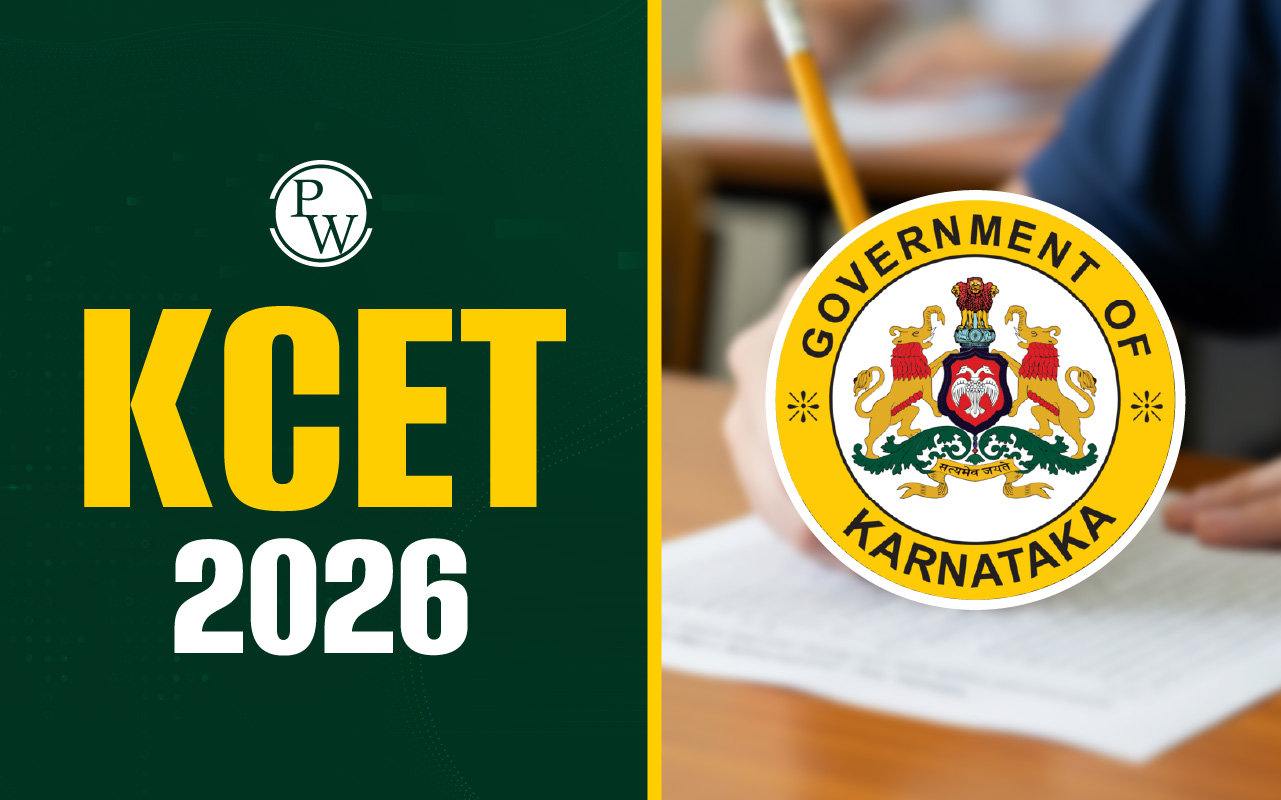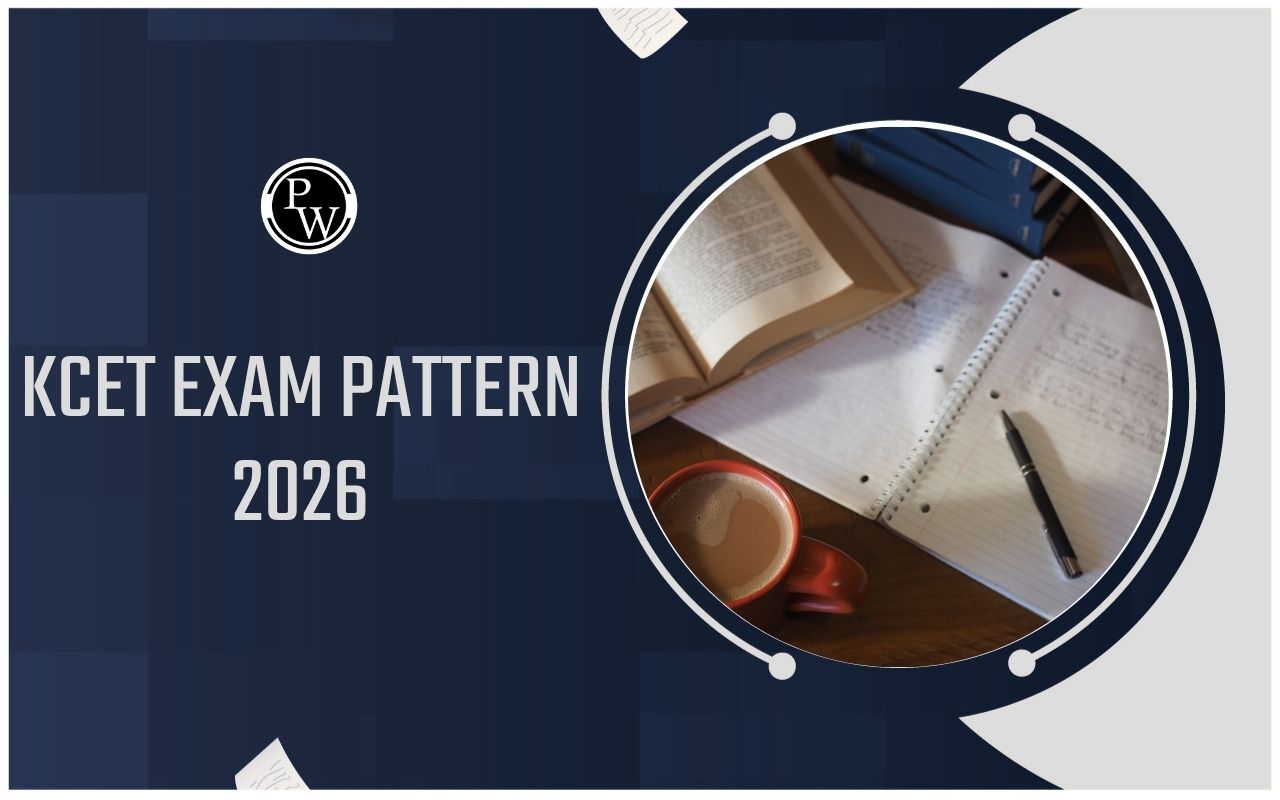
KCET Chemistry Syllabus 2025: If you are a KCET aspirant struggling with the Chemistry section, the first step to overcoming this challenge is to understand the syllabus thoroughly. The KCET Chemistry Syllabus 2025 is designed to provide students with a solid understanding of both basic and advanced chemistry concepts.
KCET Mathematics Syllabus 2025
The syllabus is divided into two academic years. The first year covers fundamental topics, while the second year includes more complex subjects. By following this structured syllabus, you can build a strong foundation in chemistry, which is essential for performing well in the KCET exam. Understanding and mastering these topics will help you prepare effectively and boost your confidence in tackling the chemistry section.7 Common Mistakes to Avoid While Preparing for KCET
KCET Chemistry Syllabus 2025 Overview
The KCET Chemistry syllabus for 2025 has been structured to provide a comprehensive understanding of key concepts in chemistry over two academic years. The first-year syllabus includes fundamental topics such as p-block Elements, s-block Elements, Hydrogen, the Structure of Atom, and Redox Reactions. The second-year syllabus builds on this foundation with advanced topics like Electrochemistry, d and f Block Elements, Chemical Kinetics, p-block Elements, and Coordination Compounds. This structured approach ensures that students gain a thorough understanding of both basic and advanced chemistry concepts, crucial for their success in the KCET exam.KCET Syllabus 2025 Chemistry First Year PUC
KCET Syllabus 2025 Chemistry First Year PUC includes fundamental topics such as P-block elements, s-Block Elements, Hydrogen, Structure of Atom, and Redox Reactions. These topics lay the foundation for understanding basic chemistry principles crucial for KCET.| KCET Chemistry Syllabus 2025 for First Year PUC | |
| Chapters | Weightage |
| Some Basic Concepts of Chemistry | 8 |
| Classification of Elements and Periodicity in Properties | 8 |
| Some p – Block Elements | 7 |
| s – Block Elements | 6 |
| Thermodynamics | 4 |
| Redox reactions | 4 |
| Hydrogen | 3 |
| Environmental chemistry | 2 |
KCET Syllabus 2025 Chemistry Second Year PUC
KCET Syllabus 2025 Chemistry Second Year PUC covers advanced topics like Electrochemistry, d and f Block Elements, Chemical Kinetics, p-Block Elements, and Coordination Compounds. These subjects build upon the first-year knowledge and prepare students for higher-level concepts.| KCET Chemistry Syllabus 2025 for Second Year PUC | |
| Chapters | Weightage |
| Solid State | 7 |
| Solutions | 7 |
| Alcohols, Phenols and Ethers | 7 |
| Coordination Compounds | 6 |
| Haloalkanes and Haloarenes | 6 |
| Surface chemistry | 6 |
| Biomolecules | 6 |
| Organic Compounds Containing Nitrogen | 5 |
| Polymers | 5 |
| Chemistry in Everyday Life | 4 |
| General Principles and Processes of Isolation of Elements | 4 |
Is it Worth to Take Drop for KCET 2025
KCET 2025 Chemistry Syllabus with Deleted Portion
KCET 2025 Chemistry Syllabus with Deleted Portion includes streamlined content where certain topics have been removed to make the syllabus more focused and manageable. The updated syllabus ensures students can concentrate on key areas essential for their KCET preparation.| KCET 2025 Chemistry Syllabus | |
| Chapters | Deleted Portion |
| Some basic concepts of chemistry | Nature of matter |
| Laws of Chemical Combination | |
| Dalton’s atomic theory | |
| Structure of atom | Discovery of subatomic particles |
| Atomic models | |
| Classification of elements and periodicity properties | Significance of classification, a brief history of the development of periodic table |
| Chemical bonding and molecular structure | NIL |
| States of matter | Liquefaction of gases |
| Critical temperature | |
| Kinetic energy and molecular speed | |
| Liquid state-vapour pressure | |
| Viscosity and Surface tension (qualitative idea only , no mathematical derivations) | |
| Thermodynamics | Heat capacity and specific heat capacity |
| Criteria for equilibrium | |
| Equilibrium | Hydrolysis of salts (elementary idea) |
| Henderson equation | |
| Redox reaction | Applications of redox reaction |
| Hydrogen | Preparation, properties and uses of hydrogen, hydrogen peroxide preparation, and structure and uses |
| S-Block Elements | Preparation and properties of some important compounds: Sodium carbonate, Sodium chloride, Sodium hydroxide, Sodium hydrogen carbonate. |
| Biological importance of Sodium and Potassium. | |
| Calcium oxide and calcium carbonate and their industrial uses | |
| Biological importance of Magnesium and Calcium | |
| P-Block Elements | Some important compounds: Borax, Boric acid, Hydrides |
| Aluminium reactions with acids and alkalies and uses | |
| Carbon, Silicon and their uses | |
| Organic Chemistry – Some basic principles and techniques | Methods of purification, qualitative and quantitative analysis |
| Hydrocarbons | Free radical mechanism of halogenation, combustion and pyrolysis |
| Environmental Chemistry | Entire unit deleted |
Timetable for KCET Dropper 2024
KCET Chemistry 2025 Important Topics
KCET Chemistry 2025 Important Topics focus on both first and second-year PUC subjects that are crucial for the exam. These include p-block Elements, s-block Elements, Hydrogen, Structure of Atom, Redox Reactions, Electrochemistry, d and f Block Elements, Chemical Kinetics, and Coordination Compounds.| KCET Chemistry 2025 Important Topics | |
|---|---|
| First-Year PUC Important Topics | Second-Year PUC Important Topics |
| p - Block Elements | Electrochemistry |
| s - Block Elements | d and f Block Elements |
| Hydrogen | Chemical Kinetics |
| Structure of Atom | p-Block Elements |
| Redox Reactions | Coordination Compounds |
| Links Related to KCET 2025 | |
| KCET 2025 | KCET Syllabus |
| KCET Application Form | KCET Eligibility Criteria |
| KCET Previous Year Question Paper | |
KCET Chemistry Syllabus 2025 FAQs
What is the syllabus of KCET 2025?
The KCET 2025 syllabus includes topics from Physics, Chemistry, Mathematics/Biology covered in the PUC 1 (11th grade) and PUC 2 (12th grade) curriculum of the Karnataka State Board.
Which portion of CET 2024 was deleted?
Certain topics were streamlined from the KCET 2024 syllabus, but the specific deleted portions can vary. For exact details, it is best to refer to the official KCET 2024 notification.
How to prepare for KCET exam 2025?
To prepare for KCET 2025, understand the syllabus thoroughly, create a study schedule, focus on key topics, practice previous years' question papers, and take regular mock tests to assess your preparation.
Is surface Chemistry deleted for KCET 2025?
To find out if Surface Chemistry is deleted for KCET 2025, you should refer to the latest syllabus update from the official KCET website or notification.
Is KCET Chemistry difficult?
The difficulty of KCET Chemistry varies among students. With thorough preparation, understanding of concepts, and regular practice, students can manage the subject effectively.
Talk to a counsellorHave doubts? Our support team will be happy to assist you!

Check out these Related Articles
Free Learning Resources
PW Books
Notes (Class 10-12)
PW Study Materials
Notes (Class 6-9)
Ncert Solutions
Govt Exams
Class 6th to 12th Online Courses
Govt Job Exams Courses
UPSC Coaching
Defence Exam Coaching
Gate Exam Coaching
Other Exams
Know about Physics Wallah
Physics Wallah is an Indian edtech platform that provides accessible & comprehensive learning experiences to students from Class 6th to postgraduate level. We also provide extensive NCERT solutions, sample paper, NEET, JEE Mains, BITSAT previous year papers & more such resources to students. Physics Wallah also caters to over 3.5 million registered students and over 78 lakh+ Youtube subscribers with 4.8 rating on its app.
We Stand Out because
We provide students with intensive courses with India’s qualified & experienced faculties & mentors. PW strives to make the learning experience comprehensive and accessible for students of all sections of society. We believe in empowering every single student who couldn't dream of a good career in engineering and medical field earlier.
Our Key Focus Areas
Physics Wallah's main focus is to make the learning experience as economical as possible for all students. With our affordable courses like Lakshya, Udaan and Arjuna and many others, we have been able to provide a platform for lakhs of aspirants. From providing Chemistry, Maths, Physics formula to giving e-books of eminent authors like RD Sharma, RS Aggarwal and Lakhmir Singh, PW focuses on every single student's need for preparation.
What Makes Us Different
Physics Wallah strives to develop a comprehensive pedagogical structure for students, where they get a state-of-the-art learning experience with study material and resources. Apart from catering students preparing for JEE Mains and NEET, PW also provides study material for each state board like Uttar Pradesh, Bihar, and others
Copyright © 2025 Physicswallah Limited All rights reserved.
Get App









